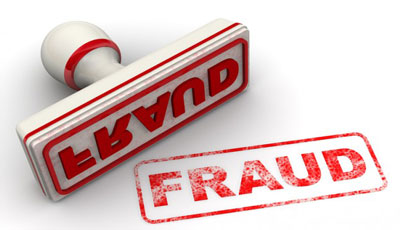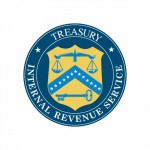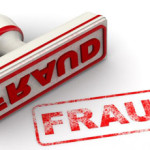Pan-European tax fraud web leads to New Jersey and Dubai

White-collar criminals aren’t usually so blatant about their intentions. But after tracking a trail of tax fraud that flowed from Denmark to Germany, the UK, Canada, Luxembourg and Malaysia, Danish investigators stumbled on a corporation in Delaware whose name all-but confessed to the crime: Raubritter LLC. Or, in German, Robber Baron. A robber baron with limited liability who is suspected of stealing €9.3 million from the Scandinavian country.
On paper, Raubritter is a pension fund, but in reality it may just be a shell company created to launder cash stolen from European taxpayers – one of 23 allegedly fake pension funds set up by Adam LaRosa. Mr. LaRosa and his partners used the companies to dupe Denmark out of a total €1.7 billion – and Belgium €500 million – by requesting tax refunds on fictional investments.
Mr. LaRosa refuses to comment on the charges but Denmark has already filed a suit against the 48-year-old American. “The constant fraudulent behavior of the accused shows a high degree of moral depravity and wanton dishonesty,” the Danish tax authorities say in their lawsuit.
Can I have my money back?
The fraud wasn’t very complex. To request the refunds, Mr. LaRosa and his partners just needed tax certificates from a financial institution confirming the investments by their supposed pension funds. Tax offices then paid out handily. And that financial institution was North Channel Bank in Mainz, an unassuming mid-sized city along the Rhine river south of Frankfurt. The private bank had a lengthy past that gave it an air of authority – on marketing materials, it prides itself on its 94-year history.
But that past had little to do with North Channel. The bank started in 1924 as Bankhaus Oswald Kruber in Berlin and was bought by Frankfurt rival Hornblower Fischer in 2000. The combined lender went bankrupt in 2002 and was eventually sold to an entity that simply gave its name as Oban. It’s unclear who or what Oban is, but Oban renamed the lender North Channel Bank and, on paper, its fortunes took a turn: In 2009, it had €30 million on its balance sheet. In 2012 that grew to €183 million. Net income exploded 16-fold to €11 million from 2011 to 2016. How? Supposedly thanks to inflows from more than 300 pension funds.
Tax investigators now say those figures are fantasy and served as the backbone of the fraud. There were no retirees investing their money and without investors, there were no pension funds. There were no investments but North Channel issued tax certificates anyway and Denmark and Belgium refunded tax money they never collected. Denmark is now suing North Channel too, while Belgium continues its investigation. Unsurprisingly, North Channel has no comment.
Gone fishing
Mr. LaRosa could have been a shooting star in the financial world. He got a doctorate from Seton Hall Law School in New Jersey and then dialed in on tax law at New York University Law School. He started his professional career at consultancy KPMG before moving to the Global Tax Compliance department at US insurer Prudential. In that role, Mr. LaRosa was ironically responsible for compliance with tax laws.
He most recently worked for Vale Insurance Partners but also owns a wine business and Canyon Runner Sportfishing, an offshoot of his father’s deep-sea fishing business. Canyon Runner’s website claims he still regularly captains. Mr. LaRosa also pens articles for trade magazines and donates large sums to his alma maters. He’s also vice president of the Hope for Children Foundation.
So where did he go wrong? Nobody knows but European investigators want to charge him with being part of a criminal organization in addition to tax fraud. After all, he had partners.
His biggest partner is well-known in German financial circles: Sanjay Shah, who also started his career at KPMG. Born in 1970 in London to Indian parents, Shah became an auditor. He’s worked for Merrill Lynch, Morgan Stanley, Credit Suisse, ING and Rabobank but, in 2009, lost his job due to the credit crunch. Mr. Shah then went into business for himself, founding Solo Capital. According to investigators, Solo was the hub of a billion-dollar fraud in Germany that specialized in a special kind of dividend stripping known as cum-ex trading. Mr. Shah is just one of 130 investors and banks accused of the practice, which cost Germany €12 billion in capital gains tax.
Make it rain
Mr. Shah doesn’t deny his involvement in cum-ex but claims it was perfectly legal. “German lawyers told me that many people made a lot of money with these businesses. It was as if they were driving trucks into a warehouse and filling them with cash 24 hours a day,” he told a Danish financial paper.
Mr. Shah’s brashness extends to the current investigation. In the case of just one listed Danish company, the conspirators filed for reimbursements that reflected owning 2.6 million shares – 1.7 million more than foreign investors are even allowed to hold. The absurdity of the fraud now has the Danish public asking what went wrong with the security mechanisms at their tax office.
That’s just one example. North Channel once issued paperwork for €50 million in tax credits, which translates to €417 million in net dividends. To get there, the conspirators would have had to hold shares worth €24.9 billion.
In Belgium the damage was smaller, but still considerable. Through North Channel Bank alone, 27 pension funds applied for tax credits of €48.3 million in 2014 and 2015. Belgian authorities are investigating a large number of defendants for “particularly serious fraud”. The prosecutor’s office in Brussels suspects that both the owner of the bank and several of its directors could be involved in the “establishment of a fraud system.”
As an American, LaRosa will soon be headed to court but partner Shah is better off. For years, the Brit has been living outside the reach of European public prosecutors in Dubai. Still, European prosecutors may be getting closer – the High Court of Justice in London recently froze the accounts of 47 people and companies close to or controlled by him, though his spokesman said it was no big deal.
“Mr. Shah has reserves that will last for many, many years,” Jack Irvine, Mr. Shah’s spokesman, said.
Andrew Bulkeley, an editor in Berlin for Handelsblatt Global, adapted this article in English. Sönke Iwersen leads Handelsblatt’s team of investigative reporters. Volker Votsmeier is an investigative reporter with Handelsblatt. To contact the authors: votsmeier@handelsblatt.com, iwersen@handelsblatt.com, a.bulkeley@handelsblattgroup.com
Source: Handelsblatt – Pan-European tax fraud web leads to New Jersey and Dubai





























